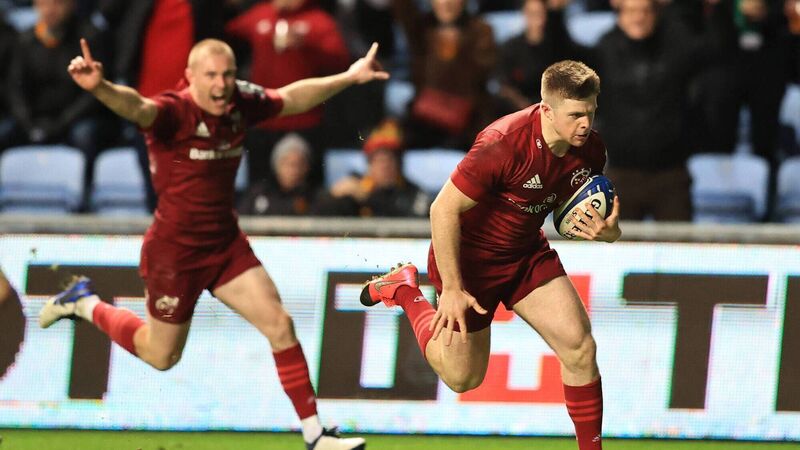Peter Jackson: Was Munster's win over Wasps better than the Miracle Match?

Patrick Campbell of Munster goes over for their sides' second try. Picture: David Rogers/Getty Images
Try from €1.50 / week
SUBSCRIBE
Patrick Campbell of Munster goes over for their sides' second try. Picture: David Rogers/Getty Images
Before Munster sent their 12 novices to Coventry on an assignment dismissed by many as Mission: Impossible, few would have heard of them.
Scott Buckley, Patrick Campbell, Eoin O’Connor, Daniel Okeke, James French and Jonathan Wren. Tony Butler, Ethan Coughlan, John Forde, Conor Moloney, Mark Donnelly and Declan Moore. Who?
Already a subscriber? Sign in
You have reached your article limit.
Annual €130 €80
Best value
Monthly €12€6 / month
Introductory offers for new customers. Annual billed once for first year. Renews at €130. Monthly initial discount (first 3 months) billed monthly, then €12 a month. Ts&Cs apply.
Newsletter
Latest news from the world of sport, along with the best in opinion from our outstanding team of sports writers. and reporters
Friday, February 13, 2026 - 10:00 PM
Friday, February 13, 2026 - 4:00 PM
Friday, February 13, 2026 - 10:00 PM

Select your favourite newsletters and get the best of Irish Examiner delivered to your inbox
© Examiner Echo Group Limited